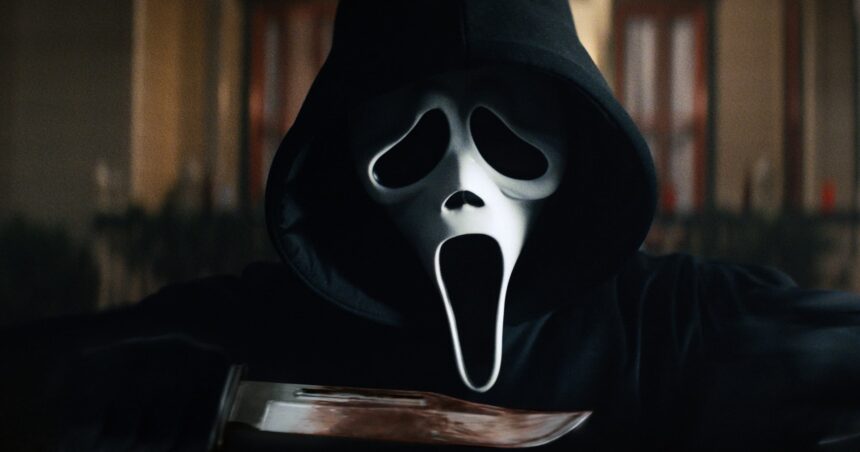Every year, as Halloween approaches, individuals eagerly engage in activities that send shivers down their spines. From watching horror films to exploring haunted attractions and donning frightening costumes, many of us willingly immerse ourselves in spine-chilling experiences. Personally, I find enjoyment in horror movies regardless of the season.
This raises an intriguing question: why do we actively seek out fear? Why expose ourselves to narratives involving serial killers, supernatural entities, and mortality when the real world already presents ample reasons for anxiety?
The answer lies in a multitude of psychological and scientific factors that explain our attraction to fear and horror. Interestingly enough, some studies suggest that Halloween can even evoke feelings of arousal! As we approach this eerie holiday, let’s delve into the reasons behind our fascination with fear instead of opting for a light-hearted romantic comedy.
Featured Experts
Robi Ludwig, PsyD, is a psychotherapist who frequently appears on Nightline, CNN, Headline News, and Fox.
The Allure of Fear: What Draws Us In?
The Pleasure Principle Behind Fear
Research indicates that brain chemistry plays a significant role in why some individuals find fear exhilarating. The amygdala—clusters of neurons located deep within our brains—processes feelings of fear. When we experience frightful moments, the amygdala activates the hypothalamus which then stimulates our sympathetic nervous system along with adrenal responses; this results in adrenaline and endorphins flooding through our systems.
This physiological response creates an exhilarating rush characterized by increased heart rates and heightened alertness—a sensation often described as “feeling alive.” However, not all fears are processed similarly; there exists a stark contrast between genuine threats versus those we recognize as fictional or exaggerated.
“There’s an enjoyable aspect to being scared while simultaneously knowing we’re safe,” explains Robi Ludwig. Recent research has shown that although initial reactions may signal danger within us physically; once we realize there is no real threat present—our brains can release dopamine leading to relief from tension without enduring negative consequences associated with actual fear.
Avenue for Learning Through Fear
This understanding clarifies why many enjoy physical sensations linked with fright but does not fully account for our attraction towards true crime stories or horror films depicting scenarios most would prefer avoiding in reality. According to recent findings from Denmark’s Recreational Fear Lab at Aarhus University—a series of studies suggest people are drawn toward these experiences because they subconsciously prepare themselves by learning about potential dangers they might face.
Diving into topics like true crime could be seen as your brain’s way of equipping itself against future threats by analyzing how others have navigated perilous situations throughout history—so next time you find yourself engrossed researching notorious criminals remember it might just be your mind attempting self-preservation!
Evolving from ancient times when humans had to remain vigilant against predators like tigers—we’ve developed an innate curiosity towards threats surrounding us today too! Coltan Scrivner—a researcher at Aarhus University focusing on “morbid curiosity”—notes how humans possess inherent intrigue regarding danger which prompts attention mechanisms directing us toward information about risks lurking nearby.
Navigating Negative Emotions Through Horror
The allure behind horror extends beyond mere adrenaline rushes or protective instincts—it also allows engagement with darker emotions often suppressed within ourselves according Dr.Ludwig’s insights regarding human psychology surrounding taboo subjects explored through storytelling mediums such as film or literature.
“There exists vicarious excitement derived from witnessing primal behavior exhibited onscreen,” she elaborates further explaining how these narratives provide insight into thoughts & feelings typically deemed unacceptable yet relatable nonetheless.” “When viewing depictions involving criminality—it offers viewers opportunity reflect upon their own darker impulses without having them internalized personally.”“Fear serves dual purpose here acting both distraction away mundane worries while simultaneously providing cathartic release allowing one process complex emotional states otherwise difficult confront directly.”“In fact engaging thrilling content may even alleviate depressive symptoms reminding audiences life isn’t so bleak compared what characters endure onscreen!”
Catharsis Through Shared Experiences
I likely resonate across multiple categories mentioned above—I’ve sought thrills via bungee jumping researched infamous murderers extensively felt immense gratitude after watching unsettling films like “Midsommar.”< br />< br />However my fondest memories stemmed from sharing these fearful moments alongside friends family members growing up together enjoying classic slasher flicks laughing nervously during jump scares creating bonds forged amidst shared terror.< br />< br />These communal experiences fostered sense belonging nostalgia reminiscent childhood adventures daring each other explore dark basements ride roller coasters scream collectively at screen during iconic scenes found within classics such “The Texas Chainsaw Massacre.”< br />< br />While everyone processes emotions differently it remains clear there exists nothing wrong wanting indulge thrillers hold seances abandoned locations equally valid preference curling up cozy blankets enjoying lighter fare such “Hocus Pocus.”< br />< br />Ultimately—we’re all navigating life filled uncertainties sometimes embracing controlled doses fright provides necessary respite amidst chaos around us!







